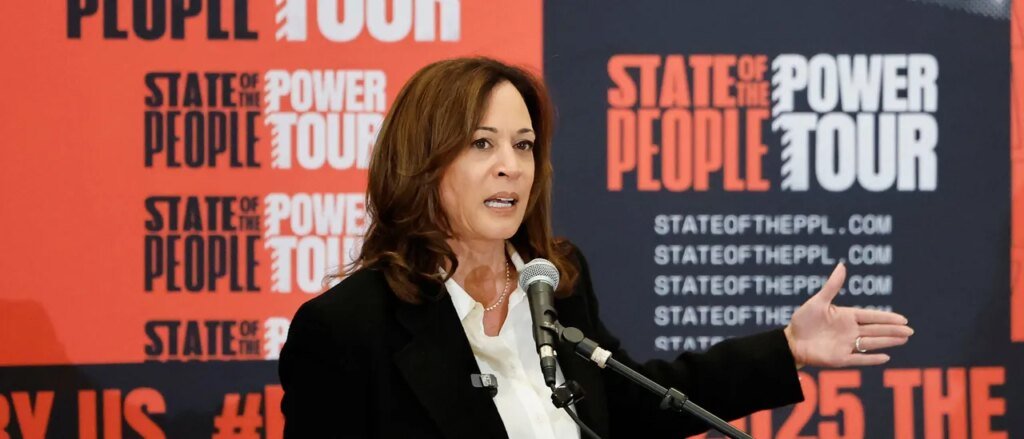On Wednesday, Kamala Harris unveiled an excerpt from her forthcoming book, “107 Days,” which takes notable jabs at the Biden administration.
Set for release in late September, the book reflects on her brief experiences amidst the presidential election campaign. In one passage shared with The Atlantic, Harris criticizes the Biden press team for not highlighting her role as “Border Czar” and hindering her achievements upon taking office.
“They had this large communications team. There were daily briefings from Karine Jean-Pierre in the press room. Yet, somehow, promoting my work or countering false claims was nearly impossible,” she states in her excerpt.
Harris goes on to recount instances from 2021, including her visit to the Élysée Palace aimed at strengthening ties with France after signing a significant security pact among Australia, the UK, and the US. She mentions her meeting with President Emmanuel Macron and a trip to the Pasteur Institute, where her mother contributed to mRNA research related to breast cancer. During her time there, she recalls unofficially discussing her interest in following “scientific methods.”
“Estimate the hypothesis and adjust based on the results. You can’t approach your plans as if you have all the answers beforehand,” she writes.
She notes a media frenzy surrounding her unintentional slip during a speech where she exaggeratedly emphasized “plans” with air quotes, leading to accusations of adopting a French accent. “It was ridiculous, but it made me realize that the White House’s focus on that misstep overshadowed significant diplomatic relations I was fostering,” she adds.
Harris explains that former President Biden’s team was, in fact, fueling the negative narratives about her. “What’s worse is that I learned a lot about his staff’s role in igniting the unfavorable stories that surrounded me. The long-standing narrative of my office being ‘chaotic’ and experiencing high turnovers was relentless,” she remarks.
Reportedly, during her first two years in the White House, Harris faced challenges with many staff leaving, creating an atmosphere characterized by incompetence—a staggering turnover rate of 91.5%. She challenges the implication that the Biden White House hadn’t allowed or even encouraged these narratives.
“Due to this ongoing scrutiny, what should have been relatively unremarkable about the Vice President became newsworthy and was heavily examined,” Harris writes, suggesting that she was the first Vice President to be tracked so closely.
“And when inaccuracies or unjust stories emerged, it felt like the president’s inner circle was okay with that. It seemed like they were intent on pushing me down a notch,” she continues.
While addressing the immigration crisis, Biden assigned Harris the role in March 2021. Although she hosted numerous roundtable discussions with Northern Triangle leaders and only visited the border on one occasion, the crisis persisted.
“When Republicans mischaracterized my position as the ‘border czar,’ no one on the White House communication team stepped in to clarify what I was really doing. We secured $5.2 billion in new investments from major companies like MasterCard, Microsoft, and Nespresso,” she states.
Harris goes on to express her dismay over how she was held responsible for issues that seemed irrelevant to both Democrats and Republicans, revealing how deeply entrenched policies like family separations weren’t resolved.
Expressing her concerns about rising public opinion issues, Harris mentions that after Hamas’s attacks on October 7, Biden’s approval ratings dipped, further complicating their stance on Israel. “I’ve consistently supported Israel’s security while urging Hamas to release hostages and accept a ceasefire,” she underscores, noting her remarks received approval from the White House and the National Security Council.
As the excerpt winds down, Harris poignantly concludes that the Biden administration’s lack of support ultimately hindered her success.
“Their mindset was zero-sum. If I succeeded, it somehow dimmed him. My achievements mattered to me but seemed lost on his team,” she reflects.







